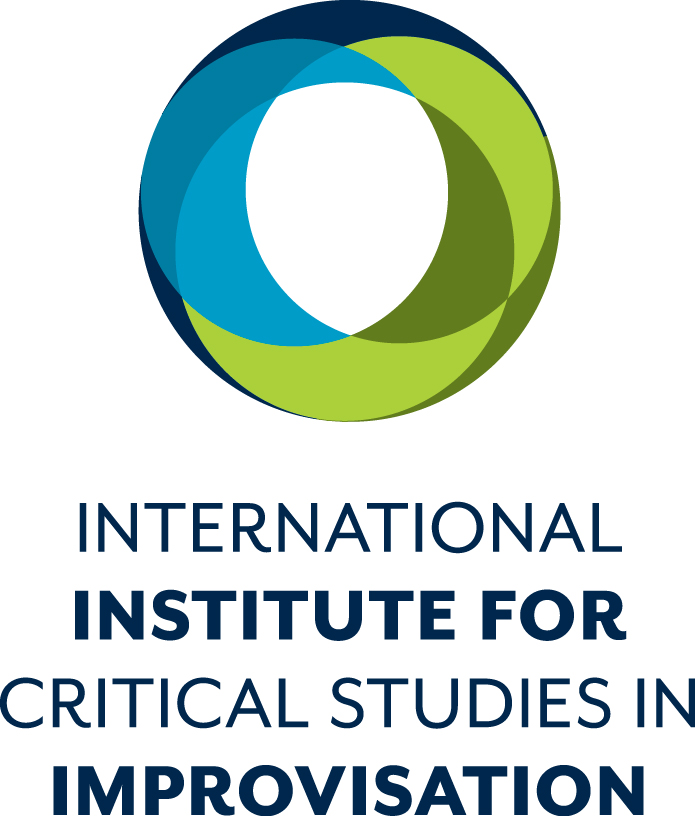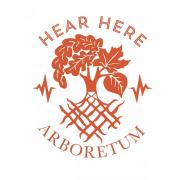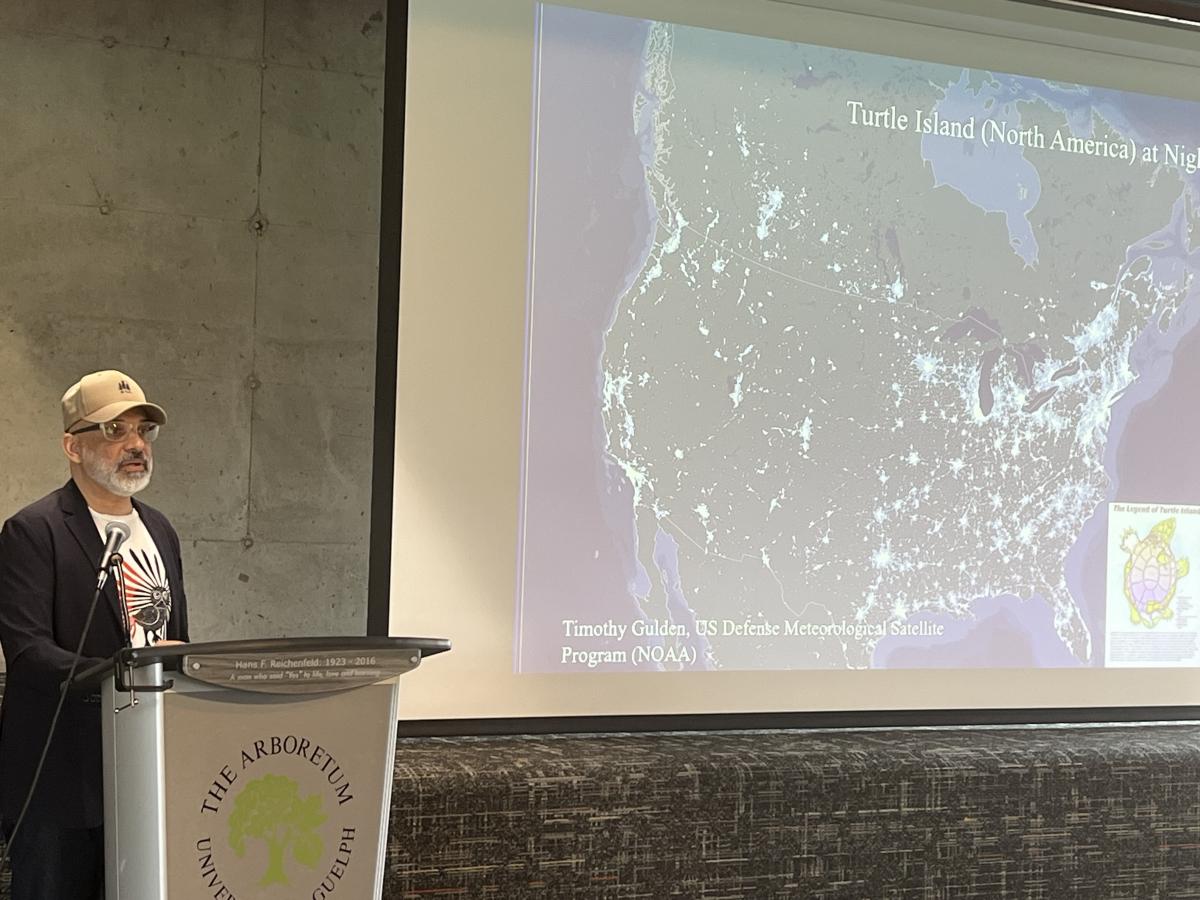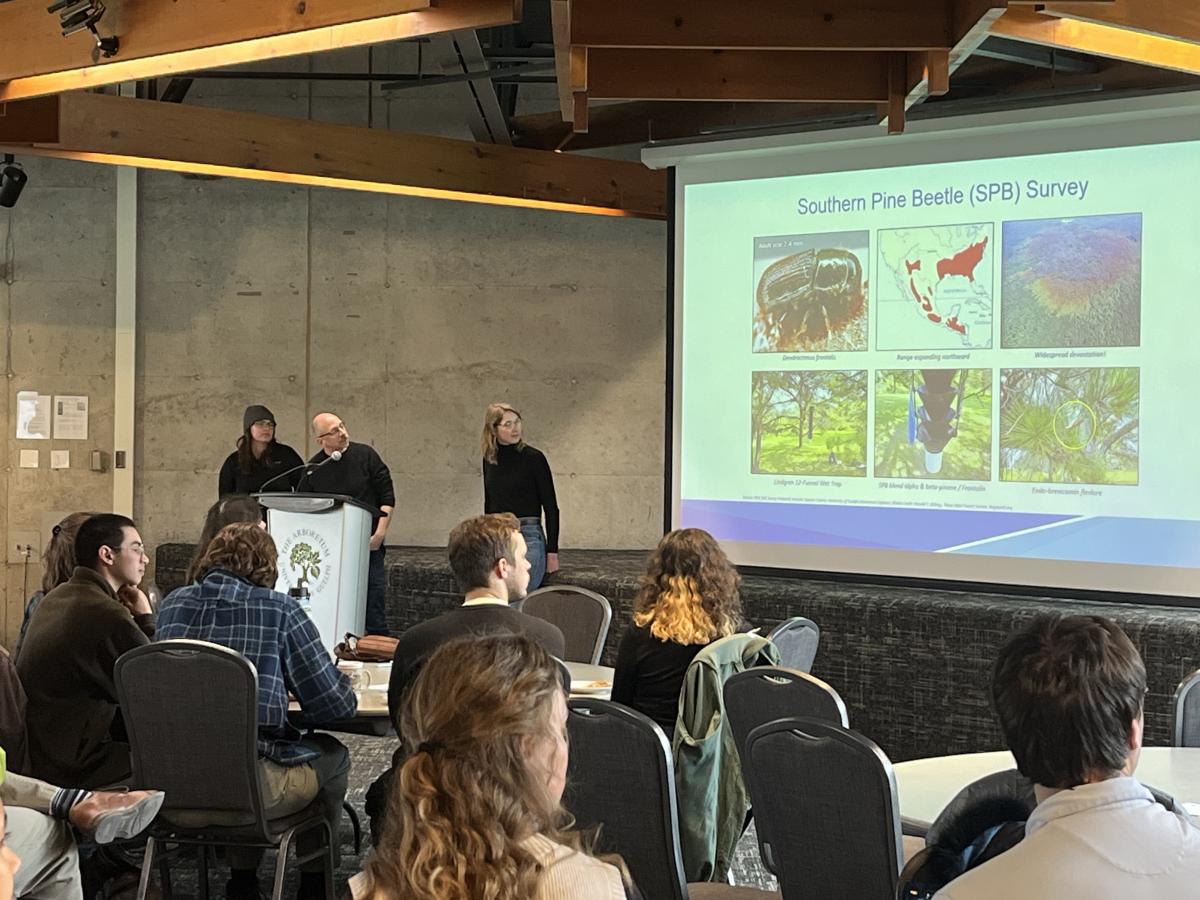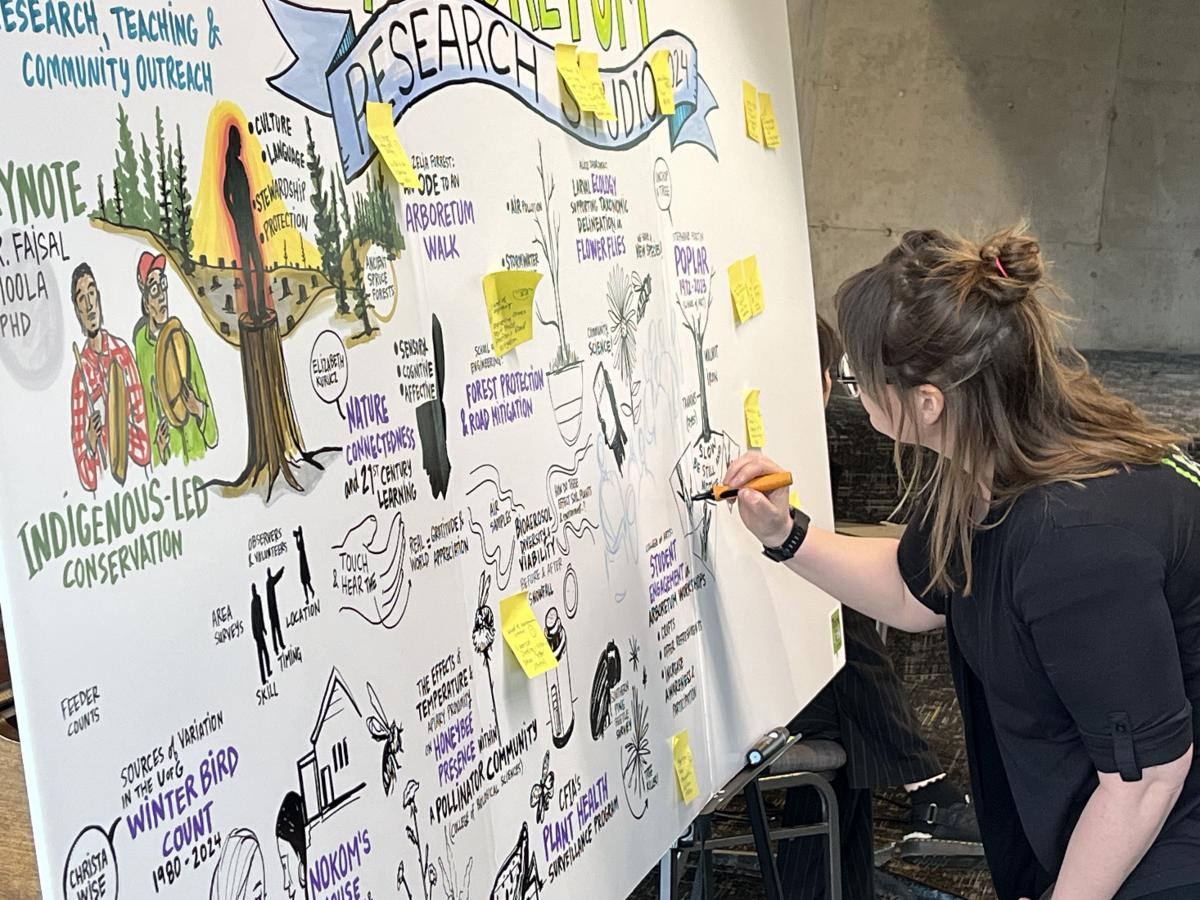Research Studio 2024
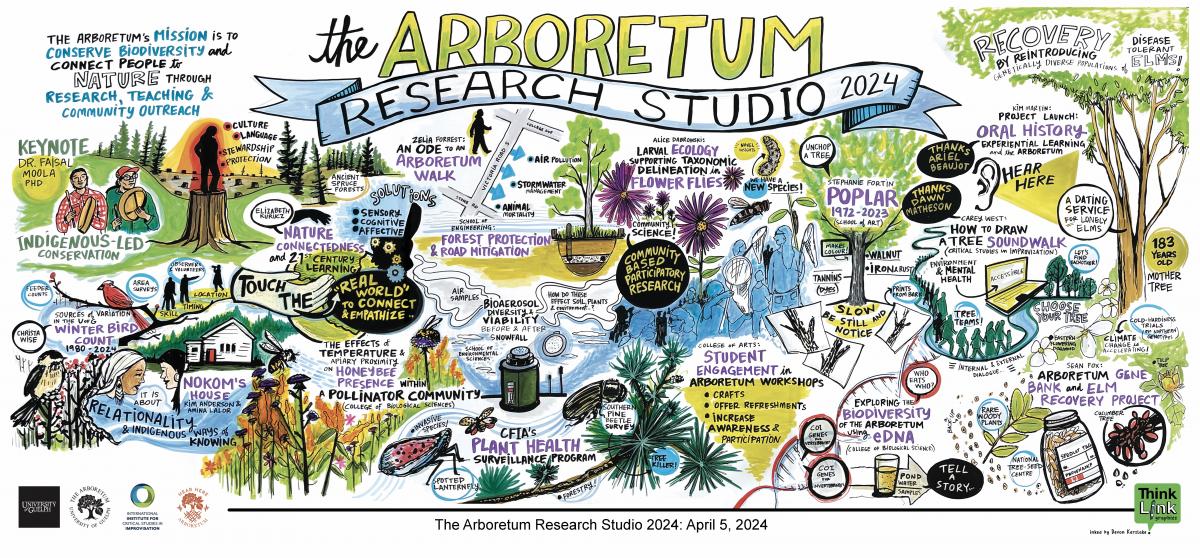
This year's Research Studio took place in the afternoon on April 5th, 2024 from 1:00PM to 4:30PM. The Arboretum Research Studio is in support of the Arboretum’s mission to conserve biodiversity and connect people to nature through research, teaching and community outreach. Over the afternoon, presentations covered a variety of topics from disciplines and colleges across the University of Guelph.
Keynote Presentation
The Role of Biocultural Education in Supporting Indigenous-led Conservation by Dr. Faisal Moola
Indigenous Peoples have been stewards of biodiversity through their own systems and forms of conservation governance for millennia. This includes the stewardship of sacred sites and culturally significant wildlife, such as caribou and wild berries, as well as customary practices that benefit nature like cultural burning. This presentation will address the current resurgence in Indigenous-led conservation in the northeastern Boreal Region and it's out-sized importance to meeting the intended outcomes of global conservation policy.
Faisal Moola, PhD, is an associate professor in the department of geography, environment and geomatics at the University of Guelph and the former director general of Ontario and Northern Canada for the David Suzuki Foundation.
Research Presentations
| Title of Presentation | Presenter (s) | Affiliation | Project Description |
|---|---|---|---|
| Sources of Variation in the University of Guelph Arboretum Winter Bird Count: 1980-2024 | Christa Wise | The Arboretum | The Arboretum's Winter Bird Count is a unique, small-scale study that has been an ongoing project for decades. By examining what factors increase uncertainty in this bird survey data, we can better understand larger trends and what causes year-to-year variations. |
| The Effects of Temperature and Apiary Proximity on Honey Bee Presence within a Pollinator Community |
Owen Sweazey, Marcus Morabito, Ari Orrantia, and Kayla Perez | College of Biological Science | Our goal for this project was to evaluate how temperature and distance from a managed honey bee apiary affected the proportion of honey bees within the pollinator community. We performed timed observations of honey bee and native pollinator visits to plots of flowering plants in the Arboretum. |
| Nokom's House | Kim Anderson and Amina Lalor | CSAHS | Kim Anderson and Amina Lalor will discuss the building of Nokom's House, an Indigenous research hub that will be located near the urban organic farm. They will discuss construction schedule and future research programming. |
| An Ode to an Arboretum Walk | Zelia Forrest | Guelph Poets Society | Zelia will be sharing a poem she wrote while on a walk through the Arboretum. The stanzas move chronologically and geographically through the trail. |
| Engineering Course Project Forest Protection and Road Mitigation | Monique Dulong, Parker Landry, Etienne Malherbe, and Goral Prajapati | School of Engineering | We are a third year engineering design team currently enrolled in ENGG 3100. We are designing a solution for the problems that the arboretum will face caused by the Victoria Road expansion and the developments on the other side of Victoria. |
| CFIA’s Plant Health Surveillance Program | Tom Liszt, Jamie Maloney and Sabina Vanderveen | Canadian Food Inspection Agency (CFIA) | Our presentation will be an overview of CFIA’s Plant Health Surveillance Program, highlighting recent research initiatives affiliated with the Arboretum, and explanations of the latest invasive species we are monitoring for. |
| Larval ecology supporting taxonomic delineation in flower flies (Diptera, Syrphidae): Community science evidence from the UoG Arboretum | Alice Dabrowski | UoG OAC/SES, Young Lab & WISE Lab | Novel flower fly (Diptera, Syrphidae) research is benefitting from accessible natural spaces and community science. Data capturing flower fly larvae-aphid-plant interactions are uncovering new flower fly species and expanding known natural history. |
| Student Engagement in Arboretum Workshops | Maia Kollmann, Hailey Berretty, Gabriela Bednarczyk, and Robert Spataru | Arts and Sciences Community Project (ASCI 3000) | This presentation covers the current state of Arboretum workshops, with a focus on barriers to student participation and gaps in marketing strategies. Survey results, analysis of existing workshops and media, and a student-oriented lesson plan will be discussed. |
| Poplar 1972 - 2023 | Stephanie Fortin | School of Fine Arts and Music - Studio Art MFA | Fortin interrogates interconnections through a deep engagement with materials, the presentation will discuss the artwork Poplar 1972 - 2023, created in The Arboretum and my studio this past fall. |
| eDNA in Victoria Woods Pond | Jessica Collier and Samantha McNeil | BIOL4350 Limnology Course at UofG | Victoria Woods Pond in the Arboretum was sampled for eDNA. We are presenting the major findings from the eDNA analysis as an infographic. |
| The Rare Woody Plants of Ontario Program and the Elm Recovery Project at the University of Guelph Arboretum | Sean Fox | The Arboretum | In 1978, the University of Guelph Arboretum first embarked on the Rare Woody Plants of Ontario Program to evaluate and help protect rare woody flora in southern Ontario. Lovingly dubbed “Picking up the Pawpaws”, the aim was not simply to cultivate individuals of each rare species, but to represent the broader genetic diversity of Ontario’s wild populations. Over the years, these conservation efforts have expanded to include specialized projects such as the Red Mulberry Working Group and the Elm Recovery Project, which was nicknamed “A Dating Service for Lonely Elms” by CBC Radio. Sean will touch upon the history and significance of these plant conservation efforts and share some hope for the future. |
| Bioaerosol diversity and viability before and after snowfall | Jackie Gordial and Elisse Magnuson | UofG SES, Goordial Lab |
Microorganisms are ubiquitous in air, but the factors influencing their distribution, biodiversity, and survival have yet to be fully understood. We collected bioaerosols before, during, and after a snowfall event at the Guelph Arboretum in order to examine its effect on abundance, biodiversity, and viability of airborne microorganisms |
These presentations will be followed by the launch of Kim Martin's project Hear, Here Arboretum: Place-based Oral History as Experiential Learning.
In Summer and Fall of 2022, students of History and Culture & Technology Studies participated in the creation of Hear, Here Arboretum: an oral history walking tour and interactive website that allows users to listen to stories of the Arboretum at Guelph, in the voices of the people that experienced the unique offerings of this land, first-hand. This presentation will introduce the project and highlight the role of the Arboretum (both as a space but also as a community of people) as a path to local, historical research. It will also serve as the project's official launch: members of both classes will be present to take people on short tours of these stories at the end of the Research Studio event.
A special thank you to the sponsors of the 2024 Research Studio:
